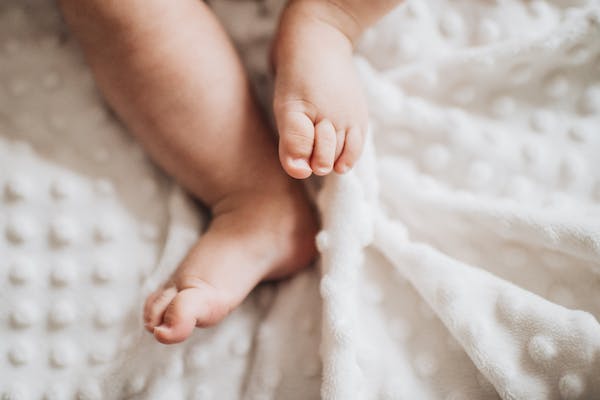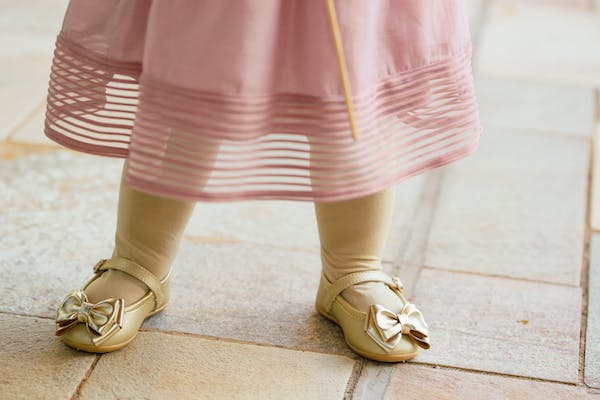LIFE WITH URBAN KIDDIES
Choosing the right nursery shoes for your baby
Introduction
Nursery shoes play a vital role in a baby’s journey. As a parent or guardian, one of the most important responsibilities is ensuring the well-being and comfort of your baby. When it comes to their early development, selecting the appropriate nursery shoes plays a vital role in supporting their growing feet and fostering proper mobility. By understanding these aspects, parents can make informed decisions to ensure their baby’s feet are well cared for during their early years. Each baby is unique, and what works for one may not work for another.

The Importance of Choosing the Right Newborn Booties
Healthy Foot Development: Babies’ feet are still developing, and they are particularly soft and flexible during the early years. Choosing appropriate nursery shoes that provide adequate support and allow for natural movement is essential for healthy foot development. Properly designed shoes can help form the arches, muscles, and bones in the feet, promoting normal foot alignment and function.
Encouraging Walking Skills: The right Baby Moccasins can enhance a baby’s walking experience. Shoes that fit well and provide appropriate support enable babies to explore their surroundings with confidence, which encourages them to take their first steps and develop their walking skills.
Comfort and Protection: Infants and toddlers are not yet able to communicate their comfort levels effectively. Choosing Baby Moccasins that fit properly and are made from soft, breathable materials ensures their little feet are comfortable and protected from potential hazards like sharp objects or uneven surfaces.
Preventing Foot Issues: Ill-fitting or unsupportive shoes can lead to foot problems and deformities in the long run. Conditions such as flat feet, toe deformities, and arch issues can be minimized or avoided altogether by providing children with the right footwear from an early age.
Promoting Proper Gait: Properly designed nursery shoes can help promote a natural gait and alignment. A balanced gait is crucial for maintaining proper posture and reducing the risk of injuries or strain on the lower limbs.
Enhancing Stability and Balance: Babies are just beginning to learn how to balance themselves while standing and walking. Baby Moccasins with appropriate traction and support can enhance stability and reduce the risk of slips and falls.
Preventing Injuries: Shoes that offer adequate toe protection and support can help prevent injuries caused by accidental collisions or falls, especially during outdoor activities.
Positive Impact on Overall Health: The right Baby Moccasins can have a positive impact on a child’s overall health and well-being. Comfortable and supportive shoes can keep them active and engaged in physical activities, promoting a healthy lifestyle from an early age.
Confidence Building: Properly fitted and comfortable shoes can boost a child’s confidence as they explore the world around them. Feeling secure and supported in their footwear allows them to focus on their environment and enjoy their learning experiences.
Establishing Healthy Habits: Introducing children to the importance of wearing appropriate footwear from an early age establishes a foundation for good foot care habits later in life. It instills in them the understanding that taking care of their feet is crucial for overall health and well-being.

Factors to Consider When Choosing Newborn Booties
Size and Fit: Proper sizing is crucial when choosing nursery shoes. Babies’ feet grow rapidly, so it’s essential to measure their feet regularly and choose Baby Moccasins that provide enough room for growth. Avoid shoes that are too tight or too loose, as they can cause discomfort and hinder natural foot development.
Shoe Weight and Flexibility: Lightweight and flexible shoes are ideal for babies as they learn to walk and explore their environment. Stiff and heavy shoes can impede their movement and may cause fatigue.
Sole and Traction: Look for Baby moccasins with non-slip and flexible soles. A good grip is essential to prevent slips and falls, especially as babies begin to walk on various surfaces.
Breathability and Material: Opt for shoes made from breathable materials like leather or mesh. Proper ventilation helps keep baby’s feet dry and comfortable, reducing the risk of skin irritations and fungal infections.
Design Features for Comfort and Support: Padding around the collar and tongue of the shoe can enhance comfort and prevent chafing. Additionally, shoes with cushioned insoles provide extra support for little feet.
Ankle Support: For new walkers, shoes with a firm back and some ankle support can provide stability and reduce the risk of ankle injuries.
Toe Protection: Ensure that the shoe design provides adequate protection for the toes, especially for outdoor activities.
Ease of Putting On and Taking Off: Baby Moccasins with adjustable closures like Velcro or elastic are easier to put on and take off, making dressing and undressing less of a hassle.
Quality and Durability: Invest in well-constructed, high-quality nursery shoes to ensure they withstand the rigors of babyhood and last through the early stages of walking.
Safety Standards: Look for Baby Moccasins that meet safety standards, such as those set by relevant regulatory bodies for children’s footwear.
Toe-Box Space: Ensure that there is enough space in the toe box for the baby’s toes to move freely. A cramped toe box can lead to discomfort and may hinder natural foot development.
Flat vs. Pre-Walker vs. First Walker Shoes: Understand the different types of nursery shoes available (soft-soled, pre-walker, first walker) and choose the appropriate type based on your baby’s age and walking stage.
Brand Reputation and Reviews: Research reputable brands known for producing quality Baby Moccasins, and read reviews from other parents to gain insights into the shoes’ performance and fit.
Budget Considerations: While quality and fit are crucial, consider your budget when selecting nursery shoes. There are various options available at different price points, so find a balance between affordability and quality.
Avoid Hand-Me-Downs: While it may be tempting to use hand-me-down shoes, it’s essential to ensure that they are still in good condition and offer proper support for your baby’s feet.
By considering these factors, you can make an informed decision when choosing nursery shoes for your baby, ensuring their little feet are well-supported, comfortable, and ready for all their exciting adventures.
The Importance of Proper Foot Development in choosing the right baby sneakers
Proper foot development is crucial for a child’s overall well-being and quality of life. It lays the foundation for their physical health, mobility, and ability to engage in various activities.
Long-term Foot Health
Proper foot development in early childhood lays the foundation for long-term foot health. Well-fitted Baby Moccasins that support the natural arches and contours of the feet can prevent potential foot problems in adulthood.
Muscle and Bone Strength
Wearing appropriate Baby Moccasins during the early years contributes to the development of strong foot muscles and bones. This strength is essential for supporting the child’s weight and ensuring proper balance as they grow.
Consequences of Improper Baby Sneakers
Foot Deformities: Ill-fitting or poorly designed Baby Moccasins can lead to foot deformities, such as bunions, hammertoes, or flat feet. These conditions may cause pain and discomfort in the feet, affecting the child’s ability to walk and engage in physical activities.
Delayed Development: Shoes that restrict natural movement or provide inadequate support can hinder a baby’s motor skill development. Proper footwear is crucial for balance and stability as babies learn to stand, walk, and run.
Ankle and Knee Issues: Improper Baby Moccasins shoes can negatively impact ankle and knee alignment, leading to issues like pronation (inward rolling of the foot) or supination (outward rolling of the foot). These alignment problems can put additional stress on the joints and may lead to pain and injuries.
Discomfort and Irritation: Babies may experience discomfort and irritation if their shoes are too tight, have rough seams, or cause blisters. Uncomfortable shoes can discourage them from walking and exploring their environment.
Risk of Falls: Baby Moccasins with inadequate traction or support can increase the risk of slips and falls, especially for new walkers who are still developing their balance and coordination.
Hindering Natural Development: Babies’ feet are soft and malleable, and wearing stiff or constrictive shoes can hinder the natural development of their arches and muscles.
Skin Issues: Shoes made from non-breathable materials can lead to excessive sweating and moisture, potentially causing skin issues like fungal infections.
Toe Injuries: Shoes with insufficient toe protection may not shield little toes from accidental impacts or sharp objects, increasing the risk of injuries.
Conclusion
Selecting the right nursery shoes for your baby is a critical decision that directly impacts their foot development and overall well-being. By considering factors like size, fit, material, flexibility, and support, parents can ensure that their child’s feet are well cared for during these crucial early years. Prioritizing the health of your baby’s feet sets them on the path for a lifetime of proper mobility and foot comfort. Remember that each child is unique, and it’s essential to observe their individual needs when choosing nursery shoes. Investing time and attention in selecting appropriate nursery shoes is a small step towards providing a strong foundation for your baby’s future foot health.
Table of Contents
Related Blogs
LOCATIONS
-
24B Fredrika Road,
Colombo 06,
00600
Sri Lanka
+94 77 700 3183
+94 76 014 3277
-
180B, Barracks Road,
Mount wellington
Auckland 1060,
New Zealand
+64 27 232 9289
-
8 Lauraville Avenue,
Werribee, Melbourne,
Victoria, 3030
Australia
+61 402 033 932
-
26 Smales drive,
Ajax,
Ontario, L1Z 1G5
Canada
+1 (647) 889-2146

